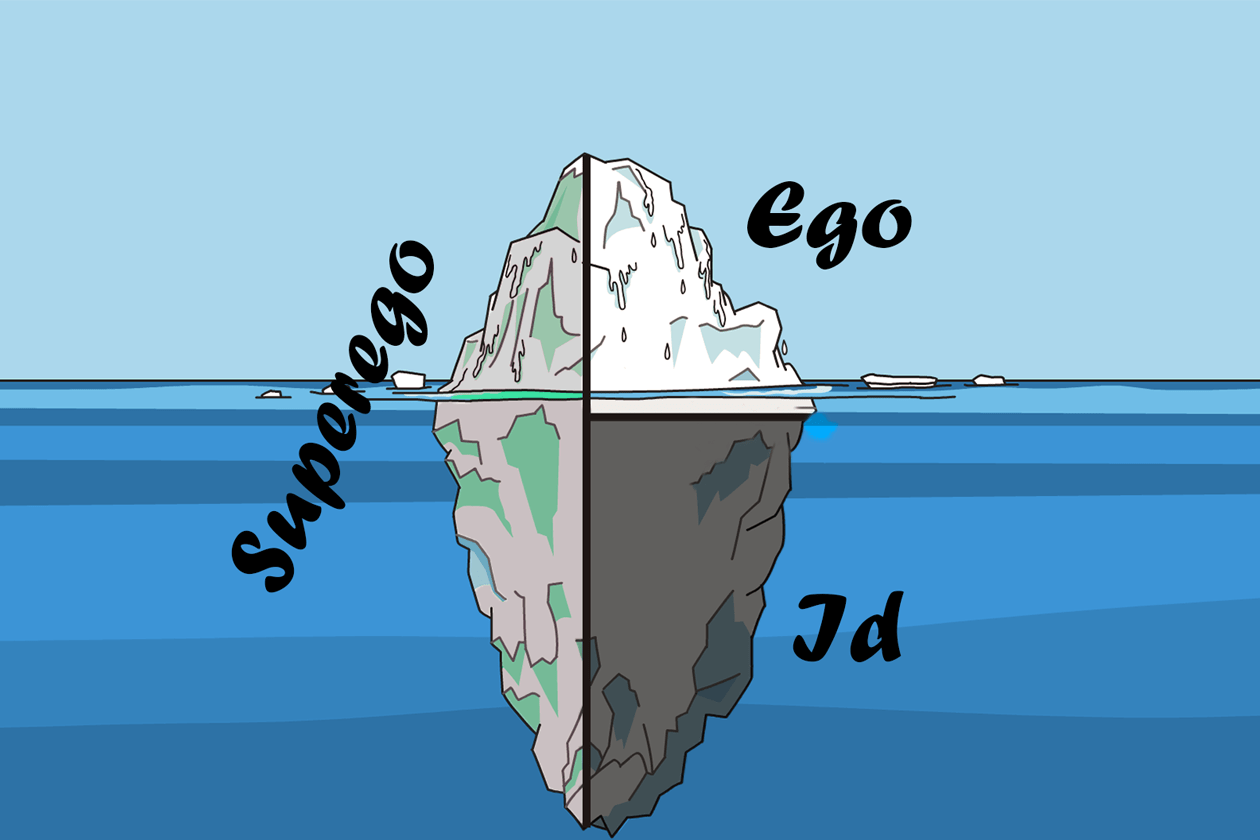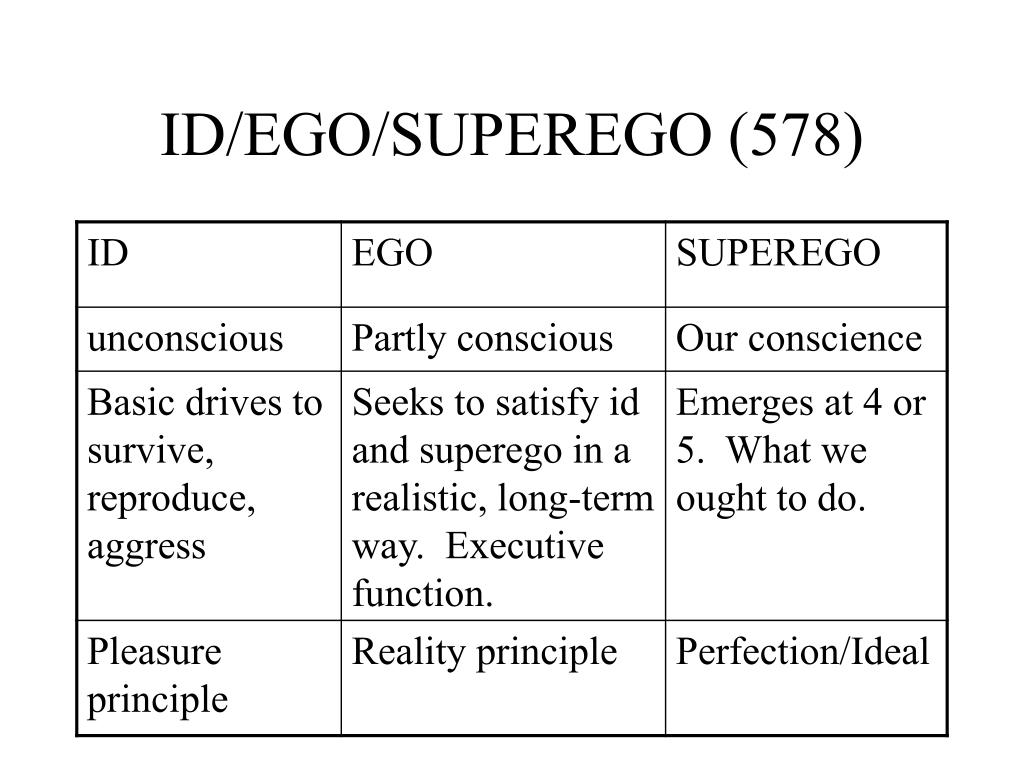

This means the reflex actions are also id controlled. For instance, id would automatically respond to the state of tension caused by an instinctual drive to reduce it by avoiding pain or seeking pleasure. This means that it responds immediately and unconsciously (or involuntarily) to the needs, urges and desires of the body. Moreover, id constitutes the unconscious part of personality.

However, as far as the id alone is concerned, it only cares about tension reduction. This does not necessarily mean that all human behaviours (caused by id) would involve socially unacceptable ways of goal achievement because there are two other mechanisms (ego and superego) that regulate the expression of id. This means that id is only concerned about the reduction of tension without carrying whether the route to goal achievement is right or wrong. For instance, if an individual feels hungry, he will experience a state of tension which drives him to eat something to reduce the state of tension.Īccording to Freud, id may not care about logical or rational considerations but only wants to reduce the state of tension caused by instinctual drives. In order to reduce this state of tension, the instinct compels an individual to engage in a pleasure-seeking behavior. When an instinct is not fulfilled, it creates a state of tension or pain. This is because an instinct is basically a drive that needs to be met. Similarly, the expression of aggressive behavior is because of the inborn instinct for aggression.Īccording to Freud, id work on the pleasure-seeking principle. An individual shows a desire (libido) for sex because it is his inborn instinct. For instance, sex and aggression are two instincts. According to Freud, an individual is born with certain instincts and biological drives which influence his behaviour throughout his life. This is, in part, because the ego knows that its mother will nolonger come to feed it, but also in part, due to the super-ego which knows that crying is not a socially acceptable reaction to being hungry.Id is the primary part of the personality which consists of instincts and innate biological drives (e.g., hunger, thirst, sleep, sex, to be relieved from pain). However, when an adult is hungry, it will not cry. This is because the id is hungry and the ego has worked out that if it cries its mother will feed it. The ego, super-ego and id work together to control the body.įor example a newborn baby, when it is hungry, will cry for it's mother. The word id is taken from Latin where it is the nominative neuter form of the third person personal pronoun normally translated as 'it itself'. The id works according to the pleasure principal, it seeks instant gratification to its desires. It is a completely unconcious part of the mind and thus continues to function even when we are asleep. The id is the part of the mind that is responsible for primative desires such as hunger.

In his later works Freud also mentions a 'cultural super-ego' which is responsible for influencing the individual's super-ego. It is responsible for our inner sense of morality and thus develops as we grow up. The super-ego is the part of the mind that acts as our conscience and tries to impose on the rest of the mind the expectations of society. The word ego is taken directly from Latin where it is the nominative of the first person personal pronoun and is translated as 'I myself'. Its task is thus to find a balance between primative drives, morals and reality.Īlthough in his early writings Freud equated the ego with the sense of self, he later began to portray it more as a set of psychic functions such as reality-testing, defence, synthesis of information, intellectual functioning, and memory. In Freud's theory, the ego mediates between the id, the super-ego and the external world. The structural theory divides the mind into three agencies or "structures": the id, the ego, and the super-ego. Most people who identify with the contemporary school of ego psychology place its beginnings with Sigmund Freud's 1923 book The Ego and the Id, in which Freud introduced what would later come to be called the structural theory of psychoanalysis. The Structural/Topographical Model of the Mind as an Iceberg. The id contains "primitive desires" (hunger, rage and sex), the super-ego contains internalized norms, morality and taboos, and the ego mediates between the two and may include or give rise to the sense of self. The ego, super-ego, and id are the divisions of the psyche according to the psychoanalytic theory developed by Sigmund Freud.


 0 kommentar(er)
0 kommentar(er)
